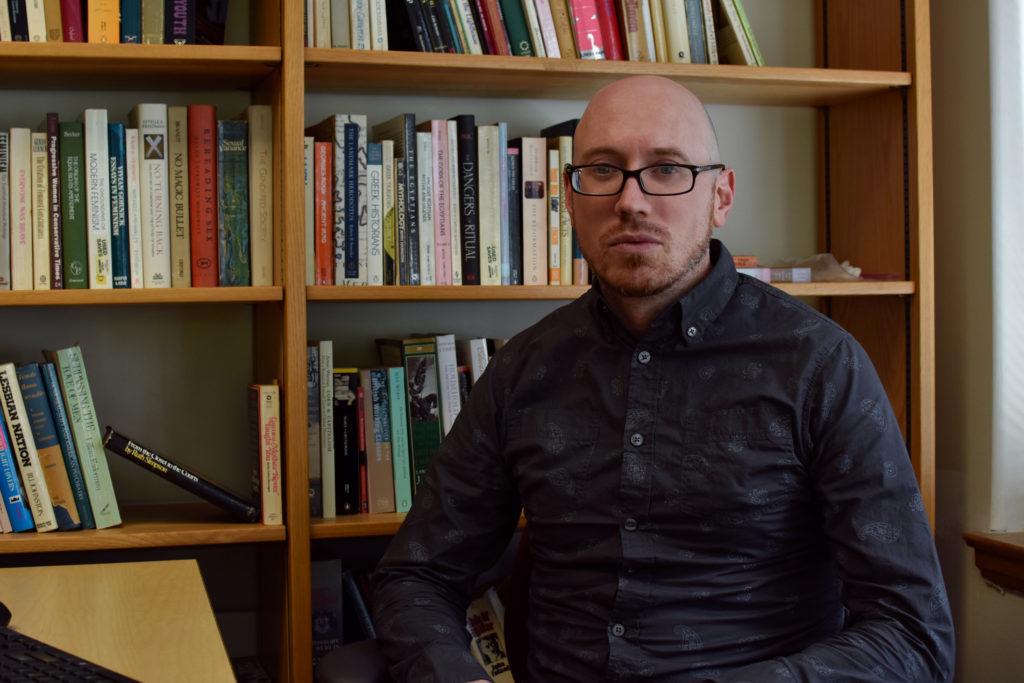Updated: Aug. 31, 2019 at 3:39 p.m.
The National Endowment for the Humanities awarded grants to two professors to further their research on the use of technology earlier this month.
The NEH announced $29 million in awards earlier this month to 215 different humanities-related projects, many of which are aimed at advancing scholars’ and the public’s knowledge about humanities disciplines through online databases and historical documents. Faculty and humanities researchers who received funding this year said the funds will empower researchers to share valuable knowledge that will advance research in humanities fields.
Christopher Brick, a research scientist, will receive about $300,000 to continue his project, “The Papers of Eleanor Roosevelt (1884–1962)” – a series of digital and print copies of former First Lady Eleanor Roosevelt’s writings and public appearances.
Brick said the project will bring more attention to Roosevelt’s role in 20th century developments, like the creation of the United Nations, which Brick said has been overlooked compared to former President Franklin Delano Roosevelt’s history.
“It becomes a great gift to scholarship,” he said. “That’s basically the purpose of it because, ultimately, all of those things are important to our national story.”
Brick said that funding for humanities research is “scarce” compared to STEM and medical research, and that humanities researchers often have to compete with one another to receive the limited amount of funding available.
Researchers received $190.7 million in total expenditures in fiscal year 2018, $757,000 of which was allocated to research in the arts and humanities. Researchers in science and engineering and medical fields simultaneously received $28.9 million and $138 million, respectively.
“In an ideal world, you would have funding and you would not be going up against a lot of really worthwhile people,” he said.
Brick said that allocating more funding for humanities-related research projects will increase opportunities for academics in humanities disciplines to produce original research. He said the federal government should appropriate more funding toward the NEH to increase opportunities for researchers to conduct and share their research to educate students.
“Humanities light the way for every kind of discovery imaginable,” he said.
The NEH awarded Elise Friedland, a classics professor, $50,000 to research and write a book detailing how classical Greek and Roman art and architecture has influenced the District’s urban planning, government buildings and public art. Friedland was not immediately available to comment on her research or funding.
Researchers who received NEH funding this year said efforts to make historical documents and museum collections more readily available online will grant researchers access to necessary background information to further humanities research.
Nelson Rios, the head of biodiversity information and data science at The Yale Peabody Museum of Natural History, received about $99,000 in NEH funding this year. Rios said he will use the funding to develop an online resource that can digitally reconstruct what ancient Babylonian ruins would have looked like when they were originally built.
He said digitizing data provides other humanities researchers with an easily accessible record of previously conducted research, which researchers can build upon to expand available knowledge in the field.
“Being able to produce these digital objects or digital circuits really accelerates the pace of discovery, and broadens access to the collection of objects,” Rios said.
David Konstan, a professor of classics at New York University and beneficiary of about $249,000 in NEH funding this year, said he will use the grant to translate Ancient Greek texts about Saint Katherine and Saint Barbara – female saints who were executed for practicing Catholic worship.
Konstan said that although humanities research does not require expensive equipment, funding for humanities research is still necessary to cover costs, like travel expenses or creating online records, researchers incur while conducting their work.
He said that humanities research is often deemed less important than STEM and medical research, but said humanities research challenges students to take a more critical view of society and to rethink their values and preconceived opinions.
“A culture that is open to criticism is one that is going to advance more quickly and find solutions to things that are important problems,” he said.
Lisa Heidorn – the co-director of The Oriental Institute Nubian Archaeological Expedition Publication Project at the University of Chicago – received about $212,000 in NEH funding, which she will use to salvage flood-prone archaeological sites in Sudan.
Heidorn said that the interconnectedness between humanities and STEM disciplines requires that humanities-driven research receives adequate research funding.
“They go hand in hand,” she said.





